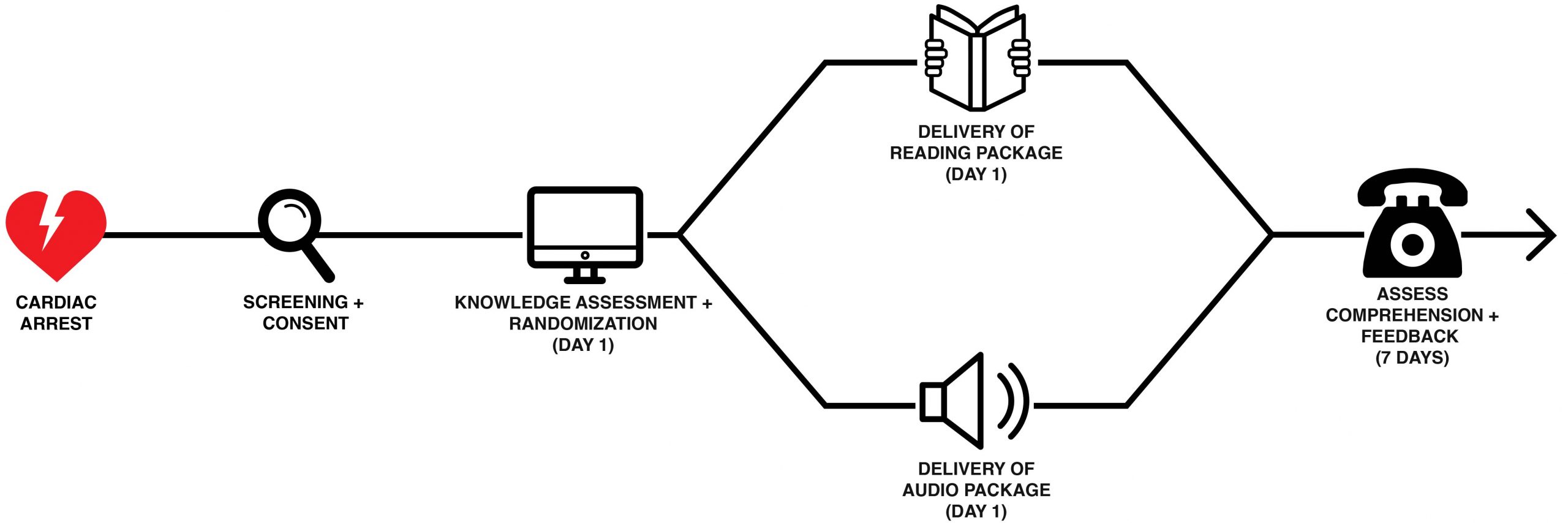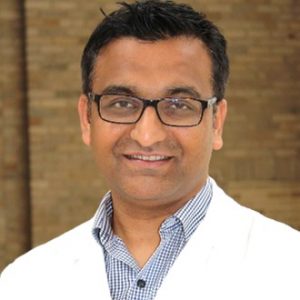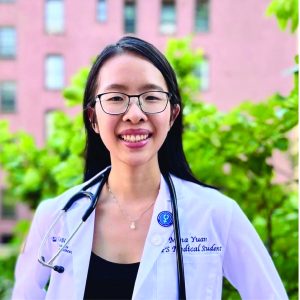Current Research
RESURFACE 2.0 Study
Removing Surrogates Uncertainty to Reduce Fear and Anxiety after Cardiac Events (RESURFACE 2.0) is a continuation of our previous work to explore the impact of curated resources on co-survivors’ psychological distress, levels of uncertainty, and caregiver burden. The current study will now test the traditional read-only format with novel AI-generated podcasts to deliver this evidence-based, trusted information resource.
The exciting, cutting-edge study is currently recruiting family members interested in giving back.
Have You Cared for a Loved One After Cardiac Arrest?
Help Us Help Others
We’re a team of doctors and researchers from Columbia University, and we want to learn from you. If you’ve supported a loved one after they survived cardiac arrest, your experience matters, and it can help improve support for families just like yours.
We’re inviting caregivers to take part in a remote, online research study that compares an audio version of an informational resource to a written version, to see which is more comforting and easier to understand during such a challenging time.
By participating, you’ll help us create better tools to promote self-care, ease distress, and support families through hospitalization and recovery.
✅ You may be eligible if you:
-
- Are 18 years or older
-
- Speak English
-
- Have been a caregiver to someone who survived a cardiac arrest
🎁 As a thank-you, you’ll receive a $25 e-gift card after completing all study activities.
👉 Interested? Send us an email at neurocardiac@cumc.columbia.edu

Completed Project
RESURFACE Study
Removing Surrogates Uncertainty to Reduce Fear and Anxiety after Cardiac Events (RESURFACE) is an National Institute of Health (NIH) and Columbia ROYBAL Center-funded innovative interventional study to explore the impact of curated resources on co-survivors and their feelings of uncertainty. The study hopes to investigate and potentially witness a decreased amount of reported uncertainty for co-survivors through exposure and usage of the unique content found on Heartsight.
The study aims to deliver the curated information at three distinct time points that correlate with shifts in the process of recovery of their loved one admitted in the hospital: the intensive care unit, the in-patient floor, and 1 month after being discharged to home. Through active feedback on Heartsight itself, the administration of a small sleep monitor, and short questionnaires, study participants will be assessed on physical and emotional changes.

Research Team
The research team works out of Columbia University Medical Center and is reachable by phone at 212-305-4234 or via email at neurocardiac@cumc.columbia.edu for any questions or concerns related to the study. Research coordinators speak both English and Spanish.

Sachin Agarwal, MD, MPH
Principal Investigator

Isabella Tincher, BA
Research Coordinator

Mina Yuan, BA
Medical Student
Views: 1279
